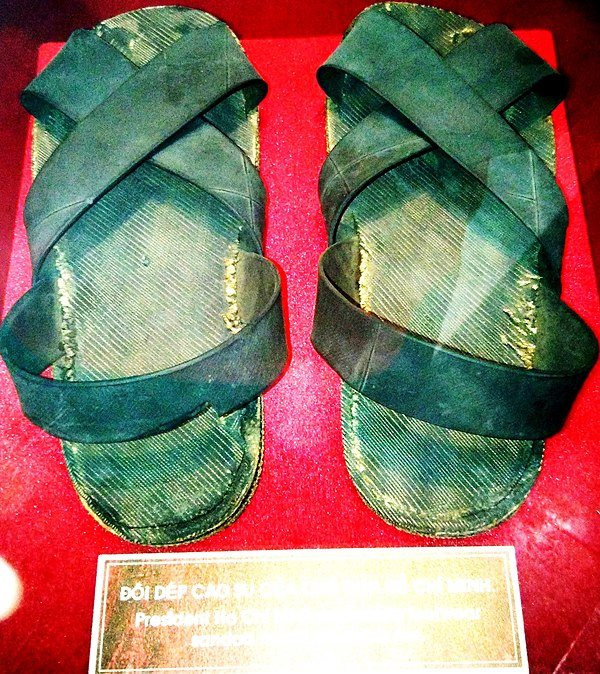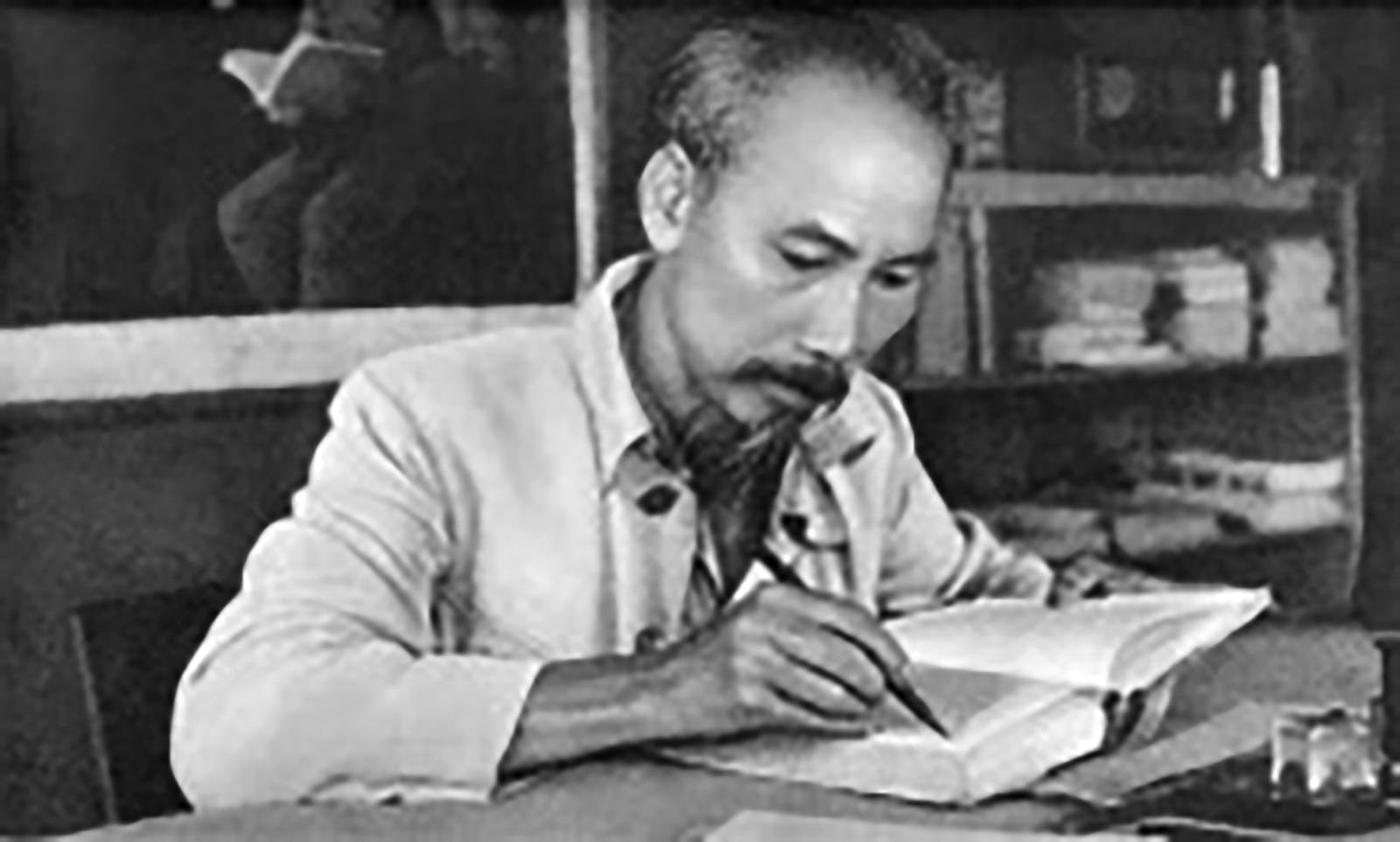Imprints of hometown and Nghe An culture in Ho Chi Minh's life
Every person, no matter who they are - an ordinary person or a great person, has a homeland. Homeland is where each of us was born and received the first impressions of life. Those impressions and feelings go deep into the subconscious of each of us, from which form the feelings, thoughts, and style of each person in life.
Our President Ho Chi Minh was also like that. He was born and spent his childhood years in his hometown of Nghe An. This is a poor countryside, people have to fight against harsh weather all year round to live and fight against foreign invaders to protect their homeland. Therefore, the people of Nghe An always have the virtues of diligence, thrift, love of work, especially the passionate patriotism, solidarity, love and kindness. Besides, the people here also have an optimistic spirit, eager to learn to overcome nature and improve their lives. Bearing the cultural imprint of Hong Mountain, Lam River, folk songs, Vi Dam folk songs... have created unique, distinct features that cannot be confused with any other region.
.jpg)
Living in a culturally rich countryside, being exposed to and feeling the sentiments of his homeland, from a young age, President Ho Chi Minh listened to folk songs and folk songs through the voices of his grandmother and mother, and was exposed to the sentiments of his village. Growing up under the strict guidance and education of his father, the love of his mother, and especially the care of his grandfather, the cultural imprint of Nghe An penetrated deeply into his thoughts and sentiments. That imprint of Nghe An in President Ho Chi Minh contributed greatly to the formation of his style.
Specifically, despite wandering around the world to find a way to save the country; even in colonial and imperialist prisons or in the hardships of the long resistance war, he always felt a pang of nostalgia for his homeland - where his most beloved people were. To him, love for his homeland was the most sacred thing:
Homeland is a place of great love and affection.
Those fifty years, so much love.
The cadres, employees, soldiers... who had the honor of living close to him all had the same comment: From his youth to his old age; from a patriotic young man to becoming a leader, President Ho Chi Minh still carried the strong style of his hometown Nghe An through every word and action.
In the sentimental thoughts of President Ho Chi Minh, simplicity in life is impartiality, surpassing all material desires in everyday life and it is also thrift in life - a good virtue of the people of Nghe An.
As we know, after liberating the Capital, at the end of 1954, President Ho Chi Minh lived and worked at the Presidential Palace. At first, the Central Party Standing Committee arranged for him to stay at the former house of the French Governor General - a luxurious and fully equipped house. However, President Ho Chi Minh refused and chose for himself a house of a citizen electrician to work closer to his brothers and comrades. Later, his residence was a simple stilt house in the middle of a garden and a simple fish pond that has become legendary.
Those comrades who had the opportunity to be close to him, when witnessing the meal of a President, all commented: He still remembered the simple dishes of his homeland. On the tray of food, there was still a bowl of soup, eggplant, a piece of braised fish or a piece of braised meat, but there were absolutely no special dishes that were distant from the working people.
During his lifetime, Prime Minister Pham Van Dong commented: “Having eaten with him hundreds of times, I always saw him carefully not letting a single grain of rice fall, because he respected the merit of the workers who produced the peanuts and rice. Small things and great virtues are in harmony in one person.”
His way of dressing was also simple and elegant, from the clothes he wore to the rubber sandals he wore, all bearing the strong mark of diligence and thrift of Nghe An culture.

The Ho Chi Minh Museum still preserves the khaki suit he wore during his lifetime. In the past, when he saw him wearing an old khaki suit, his serving comrades suggested changing to a newer one. He said, "Our people are still poor and facing many difficulties. This set of clothes is enough for me." Garment Factory 10 of the General Department of Logistics sent him a new set of khaki suit. He accepted it, but he sent it back so that the factory could use it as a competition award for its workers.
As the head of the Party and State, he was busy with a thousand and one things, but he still took time to increase production, grow vegetables, raise fish... around the house where he lived was a garden with many kinds of trees, fruits, including hibiscus - reminding him of his homeland.
Thus, just by what is around us, expressed through the way of eating, living, dressing and living, we can see in President Ho Chi Minh a faint imprint of his homeland, that is simplicity, diligence, thrift, and respect for labor. Through those actions, we can also see his deep affection for the masses, a love of sharing, not wanting to live "above the standard of living of an ordinary person".
His compassion and love for people are also shown through his gestures and actions, but here I just want to mention the highest generalization, which is in his thoughts that lead him to action:"I have only one desire, an utmost desire, that is for the country to be independent, for the people to be free, for everyone to have food, clothes and education."From those wishes, he left to find a way to save the country, overcoming all hardships and sacrifices.
That humanity is not only shown to the Vietnamese people but also to the hard-working people in the world. Wherever he went, wherever he was, he felt pain for the people who lost their country, were enslaved and miserable. Humanity and a feeling of respect for all those around him, it is also the cherishing of human feelings, the tolerance towards those who made mistakes in the past, from there, reminding them of good qualities, guiding them towards truth - goodness - beauty.

The optimistic spirit and eagerness to learn of the people of Nghe An is also clearly demonstrated throughout the life of President Ho Chi Minh.
We know that, with a passionate love for the country, to find a way to save the country, to make sure the people have food, clothes and education, he left with empty hands, regardless of the cold of ice and snow, he still worked hard as a waiter, sweeper, photographer... to earn money for revolutionary activities. And when in prison, his spirit was still undaunted. Overcoming those hardships was thanks to his strong belief in the future, an optimistic spirit of love for life. The verses with concerns about nature, homeland and country are a proof of his optimistic spirit.
Ho Chi Minh was very studious since his childhood, and that trait was one of the traditions of his homeland. Later on, no matter where he was or what the circumstances, he always took the opportunity to learn foreign languages, read books and research world issues. That gave him a profound knowledge of the world and current events.
Thus, the culture of Nghe An was selectively absorbed by President Ho Chi Minh. Those cultural quintessence were deeply ingrained in his subconscious, and were a very important part in forming Ho Chi Minh's style. Therefore, in Ho Chi Minh, whatever he did, when he was young or old, in his behavior, living, working, thinking, etc., he still carried the strong imprint of his homeland's culture. That was because from a very early age, he deeply loved the land of Nghe An, rich in tradition, and deeply loved the hard-working but optimistic people. Before leaving this world, Uncle still missed his homeland of Nghe An. In the song "Uncle's Advice Before Leaving" by musician Tran Hoan, he still left us with a touching feeling:“…The story goes that Uncle Ho asked to hear a Vi song, remembering Sen village from his childhood… He wanted to hear a folk song from Nghe An, because Sen village was always in his heart…”
Through Ho Chi Minh, we - the people of Nghe An are even more proud and love our homeland more - A Nghe An that has been deeply imprinted in the heart and feelings of President Ho Chi Minh - National liberation hero, world cultural celebrity./.


